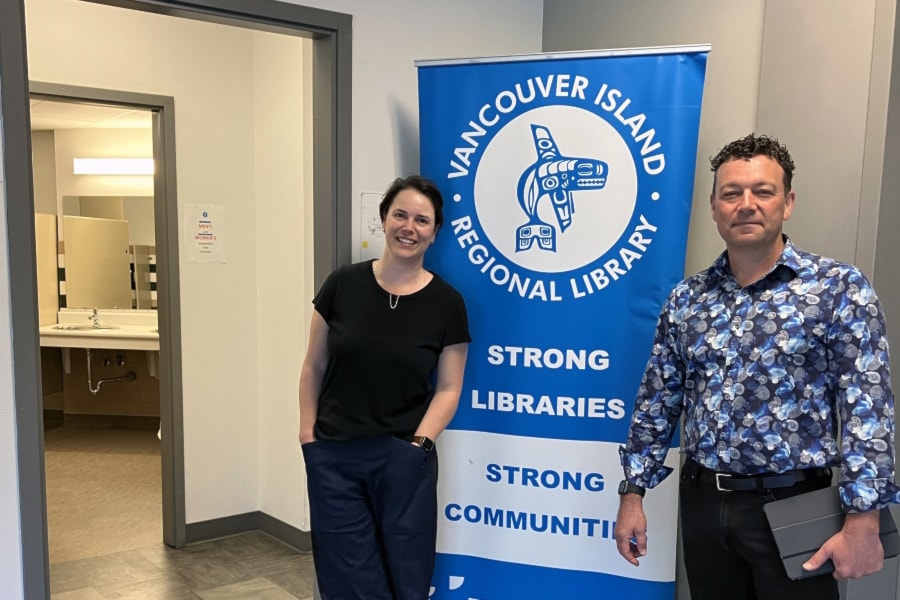Technology piloted at Nanaimo's Harbourfront Library to be expanded to other VIRL branches
The washroom sensors are up and running at Nanamo's Harbourfront Library and will be rolled out to other locations across the island in the coming days.
Reverse action sensors monitor for medical emergencies such as toxic drug poisoning. The sensors are activated when someone enters a public restroom and passively monitor for any movement. If they detect an abnormality, an alert is sent to a dedicated mobile phone monitored by facility staff. The sensors do not have microphones or cameras.
Last year, Island Health trialed sensors in restrooms across the region, including at Nanaimo Regional General Hospital, Comox Valley Nursing Centre and the Mental Health and Substance Use Facility in Courtenay, before rolling out trials at North Island Hospital in Courtenay, Campbell River and District, the Tyee Office of Mental Health and Substance Use in Campbell River and the Eric Martin Pavilion in Victoria.
The trial, which took place in the central and northern islands between August and December 2023, saw 407 toilet checks based on sensor alerts, resulting in five situations where a patient responded to let staff know they were OK and staff had to attend to a patient in crisis.
In December of that year, ten sensors were installed at Nanaimo's Harbourfront Library, as the library was deemed an “at-risk VIRL branch.” Based on the effectiveness of the program at this library, additional sensors were installed at other VIRL branches in Courtenay, Campbell River, and Port Hardy. This was funded by $50,000 in Island Health grant funding for projects “focused on improving mental health, building youth resilience, and reducing harms associated with unregulated drug supply.”
Emily Matthews, associate director of experience and interaction at the Vancouver Island Regional Library, said the sensors have made monitoring restrooms “much easier, safer and more effective.”
“Public library restrooms are among the few remaining public facilities in many cities and towns that are freely available to anyone who needs them, and they continue to face increasing pressures on their availability,” she said in a press release. “The sensors not only make the restrooms easier for staff to manage, they also help create a safer space for patrons.”
More sensors will also be installed at Oceanside Health Centre in Parksville, the Cowichan Valley Mental Health and Substance Use Centre in Duncan, Harbour Supervised Consumption Services in Victoria and washrooms at Royal Jubilee Hospital.



